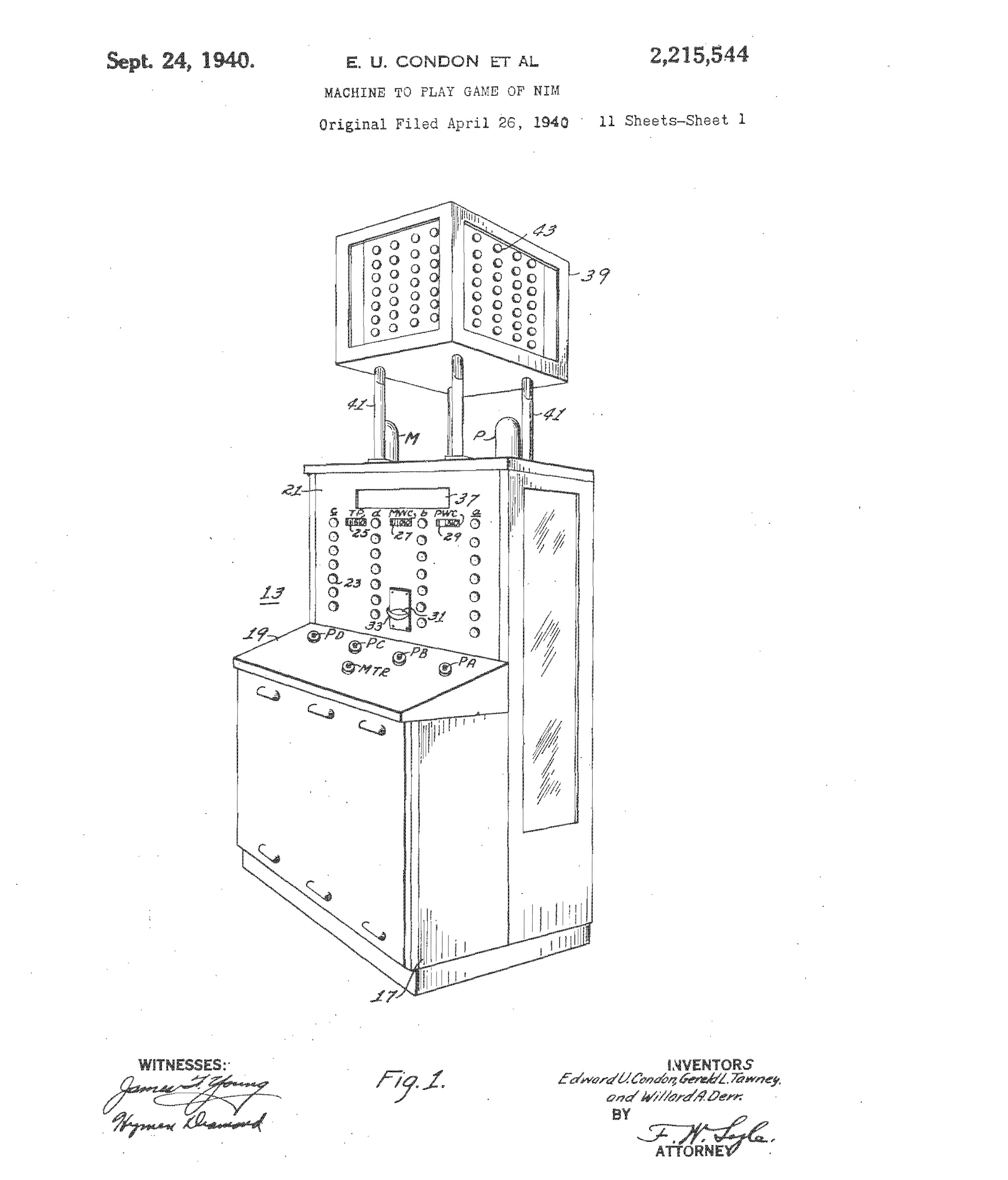At the 1939-1940 New York World’s Fair, the 40 million visitors stepped into ‘The World of Tomorrow’. One highlight entertaining our future selves was the Nimatron, the world’s first video game.
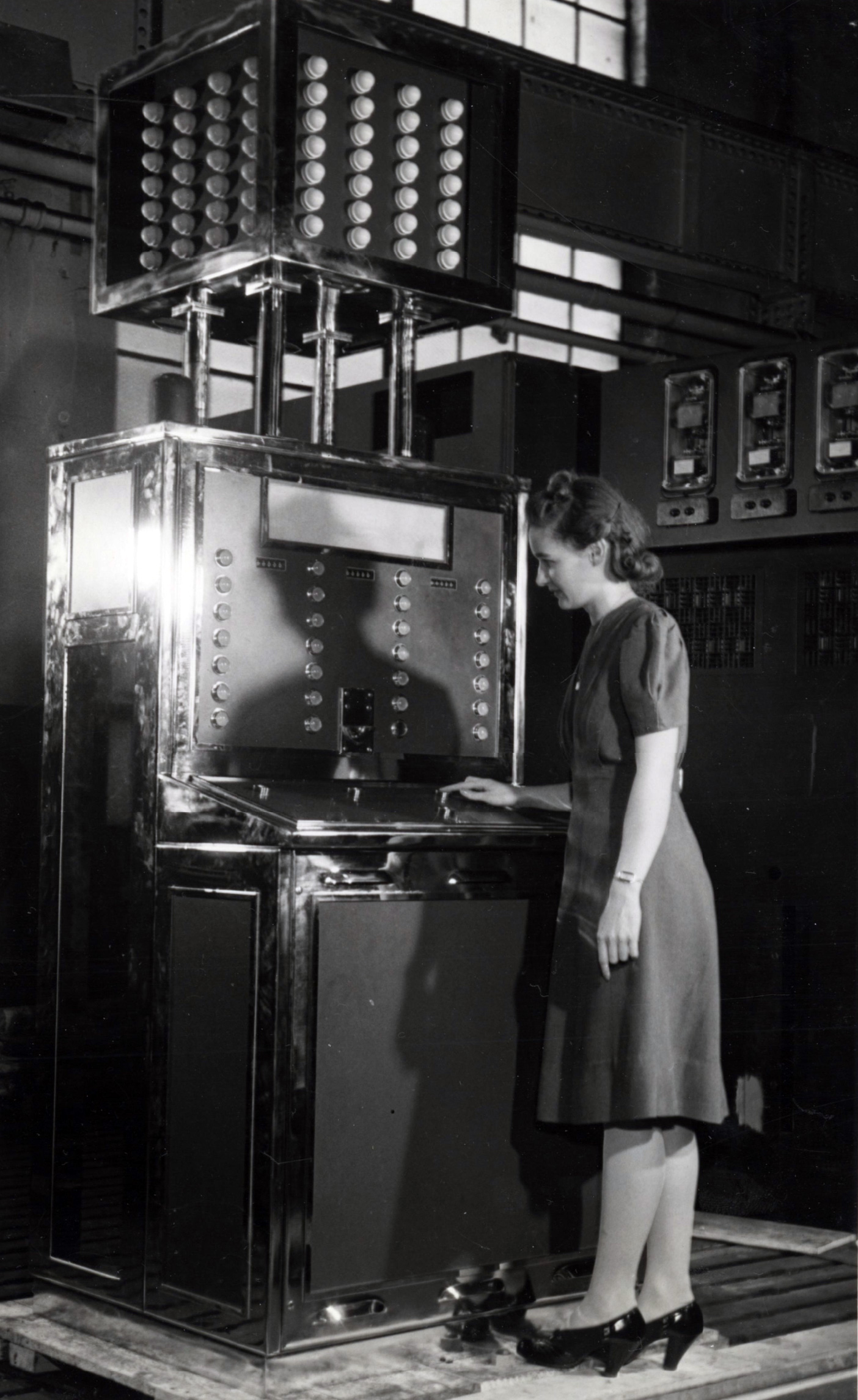
The Nimatron
Although not everyone at the expo was playing games, with many preferring to gaze at the acres of human flesh on display. As the The New York Daily News reported:
“The World’s Fair 1940 whirled with activity yesterday as hundreds of showgirls, swimmers, acrobats and freaks arrived to begin rehearsals for Saturday’s opening. Five new girlie shows went through their paces, with 150 swimmers rehearsing the new version of Billy Rose’s Aquacade.”
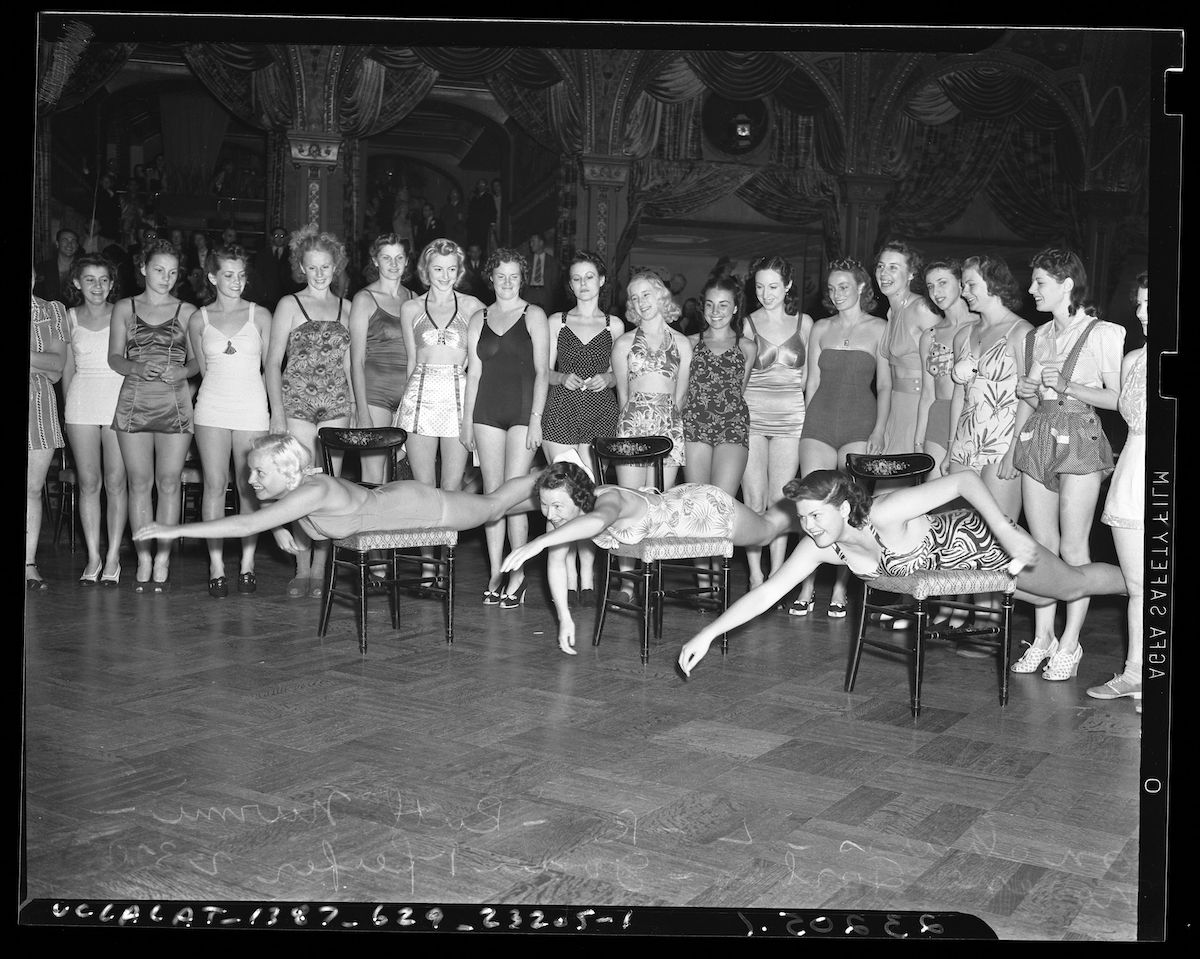
Women auditioning at the Biltmore Hotel for Billy Rose’s Aquacade featured at the 1940 Golden Gate International Exposition, Los Angeles, 1940
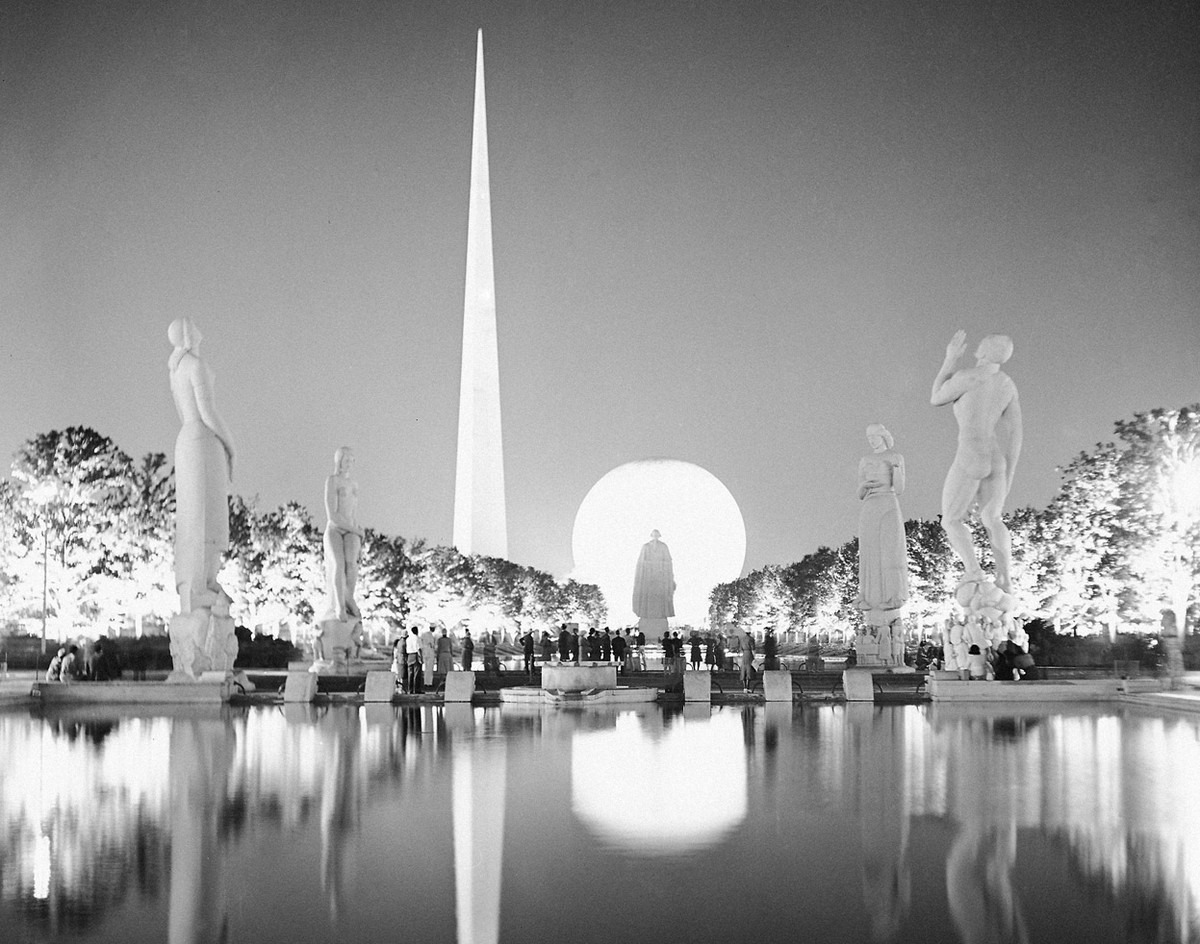
A view taken from the side of one of the many lagoons at the New York World’s Fair on July 7, 1939. Light brings out some of the wondrous beauty as erected at the “World of Tomorrow”. The famous statue of George Washington is silhouetted against the lighted Perisphere.
As war loomed in Europe, the Fair was rebranded ‘For Peace and Freedom’. But, nonetheless, it offered escapism from the Depression and problems in Europe. To remind visitors what America’s Founding Fathers had rejected, the show coincided with the 150th anniversary of George Washington’s inauguration. And to further extol the US way of life, President Franklin D. Roosevelt gave a televised address from the Fair, and in doing so became the first president to appear on TV.
Technology was to the fore of the American future. There were demonstrations of colour photography, air conditioning, nylon, Formica, fluorescent lighting and a dishwasher battle (above). And at the Westinghouse pavilion, you could meet Elektro, a seven-foot Art Deco robot who could talk, smoke cigarettes, and blow up balloons, and play the world’s first video game. Devised by the company’s in-house physicist Edward Condon (March 2, 1902 – March 26, 1974), the Nimatron was based on an ancient numbers game called ‘Nim’.
To play Nim, the game’s two players build piles of coins or tokens. Each player takes a turn by removing a number of coins from a single pile. The aim is to take the last coin, or to avoid being the player who moves last. Condon and his Westinghouse’ electronic game would be a human’s mechanical opponent.
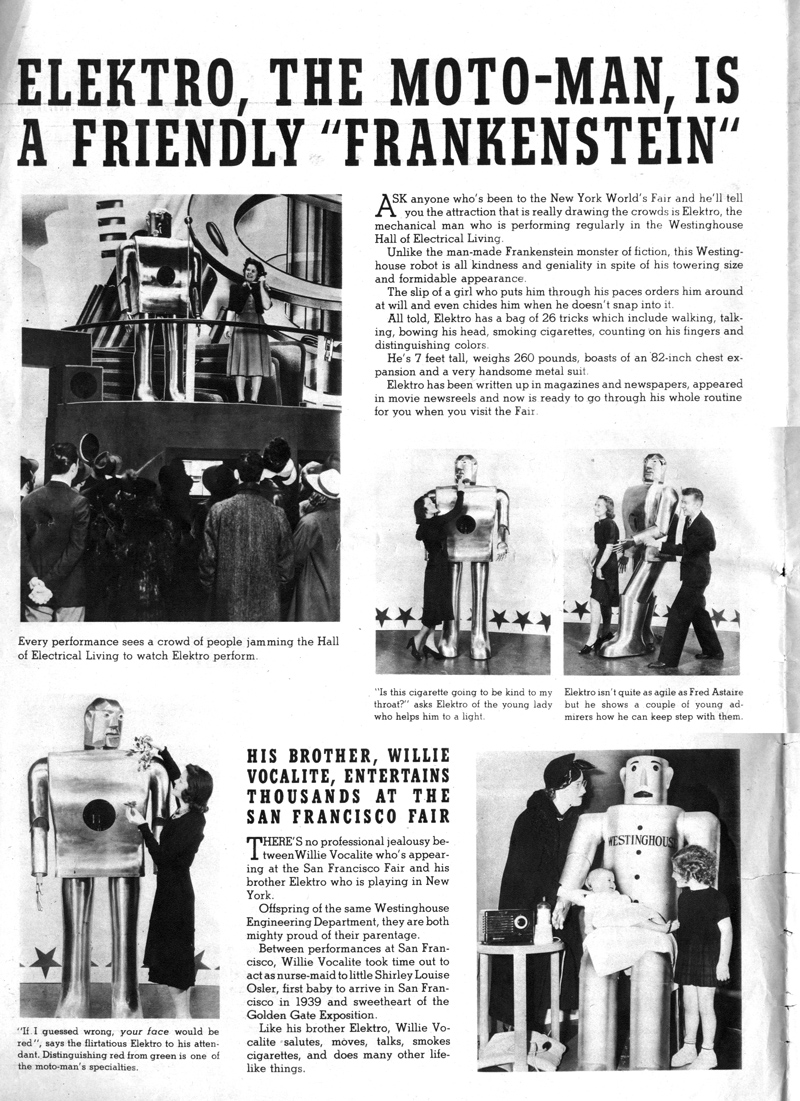
Westinghouse Fair World Newspaper, 1939
Would you like to support Flashbak?
Please consider making a donation to our site. We don't want to rely on ads to bring you the best of visual culture. You can also support us by signing up to our Mailing List. And you can also follow us on Facebook, Instagram and Twitter. For great art and culture delivered to your door, visit our shop.
